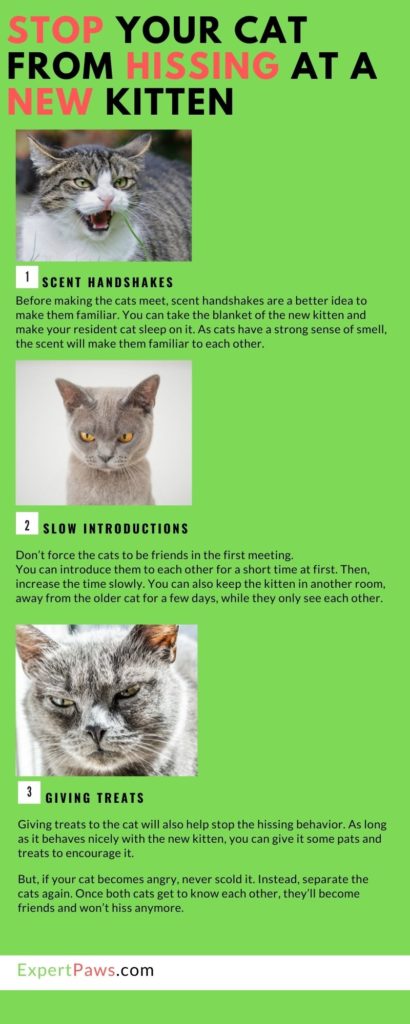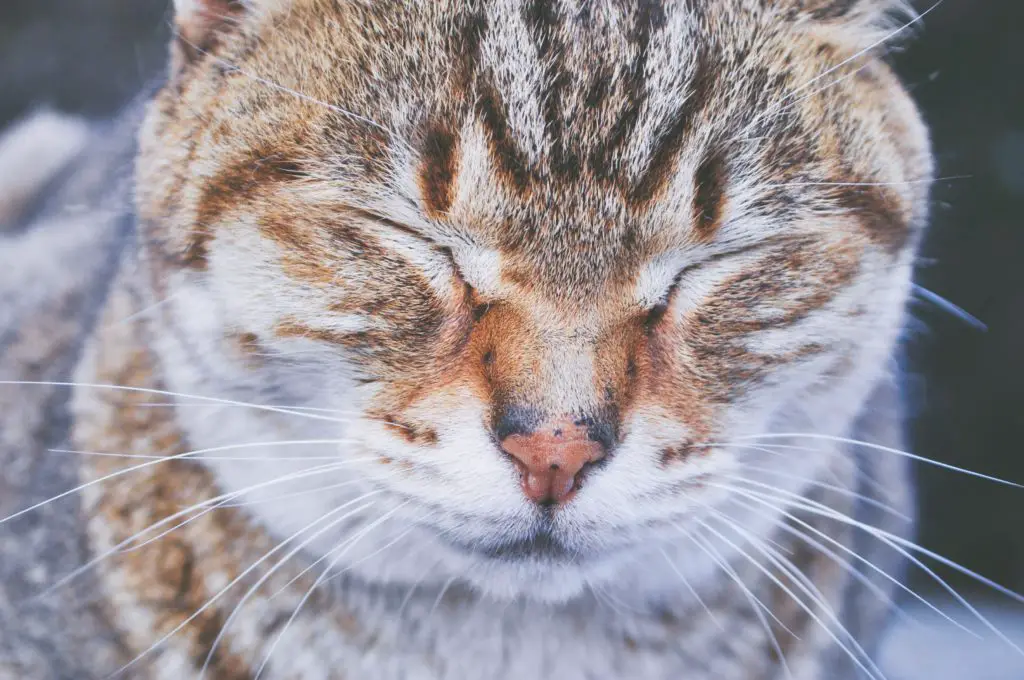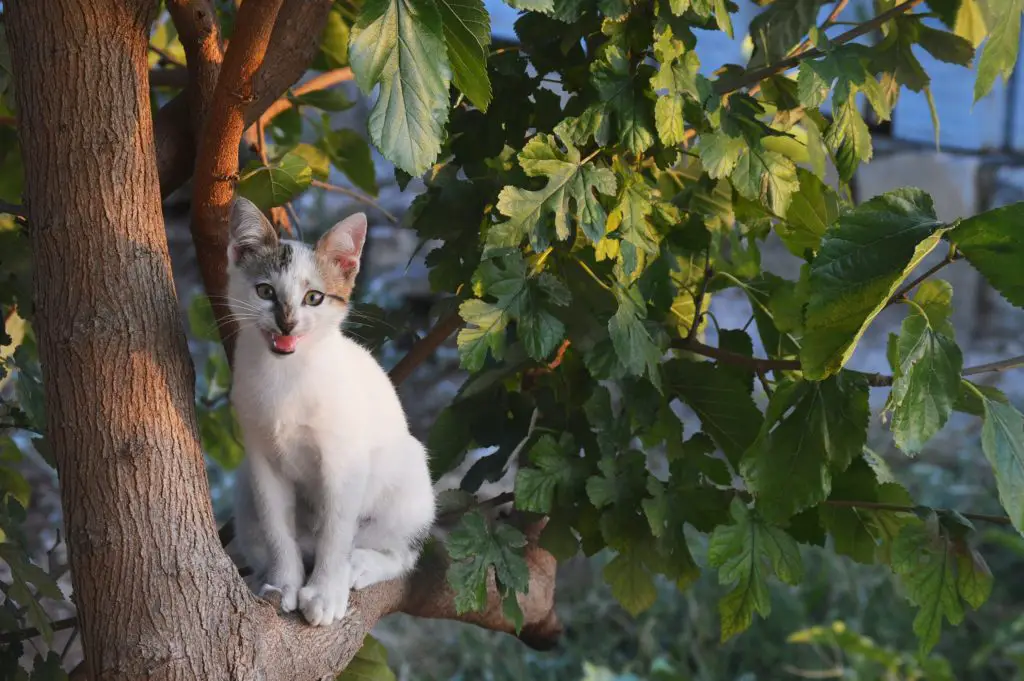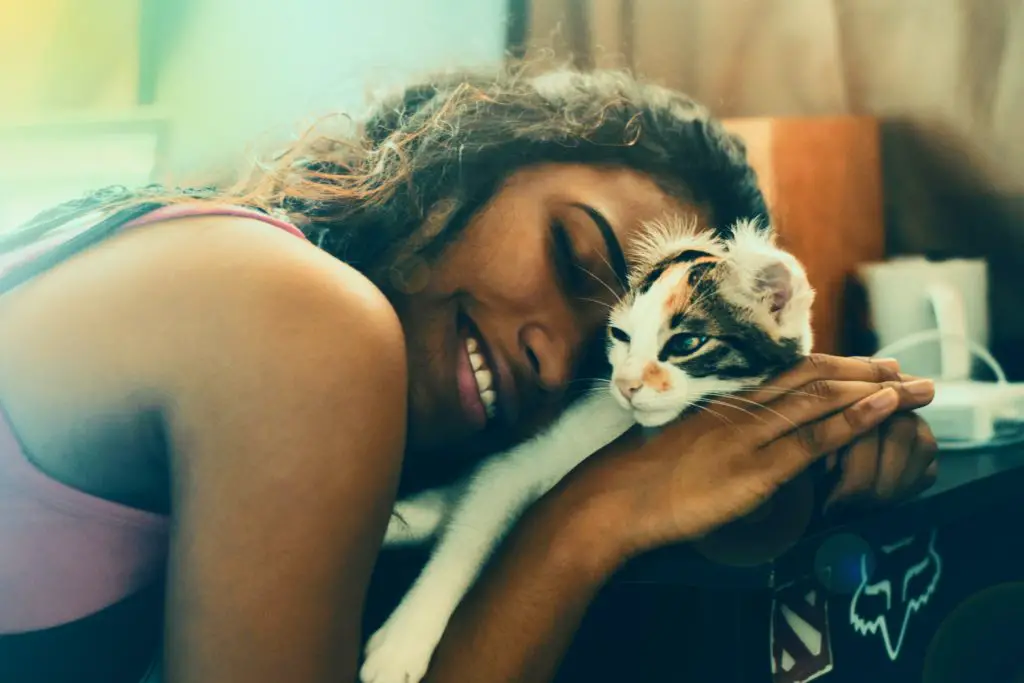Keeping a cat as a pet for a long time is always fun until you introduce it to a new kitten. You will see extreme changes in the mood and behavior of the adult cat as soon as it sees another kitten in the house. In most cases, it will hiss and growl to scare the kitten, which can be worrisome for the owners.
Do you want to know how to get your cat to stop hissing a new kitten? Giving attention to your older cat and giving her time to accept the change will stop the hissing behavior. You can also make her familiar with the new cat’s scent before the introduction. Give her some space and reward her for the times she shows good behavior in front of the new cat.
Today we are going to discuss why this behavior occurs, and how to slowly eradicate it, so read on. Check out the list of the best organic cat treats on Amazon now!
Is It Normal For New Cats To Hiss At Each Other?
While it may seem weird to the owners, new cats hissing at each other to scare them away is completely normal. When you introduce two cats to each other for the first time, they may have a hard time being friends. Both of them will consider the other as an enemy.
If the hissing behavior isn’t followed by extreme aggression and fights, it’s normal and nothing to be worried about. However, the owners should also try to prevent this behavior as soon as possible.
Should I Let My Cat Hiss At The New Kitten?
When introducing your resident cat to a new kitten, you will most probably notice the hissing and growling behavior. In most cases, older cats do this to new kittens to scare them away. If you notice this behavior, let it be. The cats will take time to get along with each other, and hissing in the first meetup is common.
But, it is better to stay with both the cats and don’t leave them alone.
If the cat is only hissing at the new kitten, it’s ok. However, make sure it doesn’t change into loud noises and physical fights. If it happens, separate both the cats to avoid any injury.
In this situation, scolding your resident cat is the worst thing you can do. The cat will feel an insult in front of the new kitten, which will make it difficult for them to become friends.
So, you should pat and praise both of them when they behave nicely.
Why Is My Cat Hissing At My New Kitten?
Several factors can encourage hissing behavior when you introduce a new kitten to your cat. Let’s discuss a few of them.
She doesn’t want to share
When a cat has been the ruler of the house for its entire life, seeing another cat in the place can make it aggressive. Your older cat will probably not want to share her personal space.
Like humans, cats can also be possessive about the people they love. As cats love their owners, they don’t want to share the affection with others. She will think the new cat will take away all the attention, which can make her aggressive and encourage hissing behavior.
It feels unsettled
Cats have a hard time adapting to changes in the environment.
When you have a new kitten in the house, the older cat will feel a change in its routine, which can be disturbing for it. The cat will think it’s all because of the kitten, and it will start hissing at it.
The new kitten is different
An older cat becoming friends with a playful kitten can be challenging.
The older cat might become resentful after seeing the kitten play all day long. The personality and physical characteristics of both the cats won’t match, which can trigger aggression.
Your cat has a temperament issue
Some cats are naturally aggressive. So, meeting a newcomer in the house can make it feel left out. This aggression will cause the cat to scare the kitten by hissing at it.

How Do I Get My Cat To Stop Hissing At A New Kitten?
Here are the steps that can help stop your cat from hissing at a new kitten.
Scent handshakes
Before making the cats meet, scent handshakes are a better idea to make them familiar. You can take the blanket of the new kitten and make your resident cat sleep on it. As cats have a strong sense of smell, the scent will make them familiar to each other.
Slow introductions
Don’t force the cats to be friends in the first meeting.
You can introduce them to each other for a short time at first. Then, increase the time slowly. You can also keep the kitten in another room, away from the older cat for a few days, while they only see each other.
Giving treats
Giving treats to the cat will also help stop the hissing behavior. As long as it behaves nicely with the new kitten, you can give it some pats and treats to encourage it.
But, if your cat becomes angry, never scold it. Instead, separate the cats again. Once both cats get to know each other, they’ll become friends and won’t hiss anymore. Check out the list of the best organic cat treats on Amazon now!
How Long Does It Take For A Cat To Accept A New Kitten?
Cats can take several weeks to accept a new kitten. In most cases, the older cat will take around six months to a year to get used to a new kitten in the house. However, the friendship time will be even longer.
Some cats can get used to each other’s presence in the house quickly and won’t take more than a few weeks. On the other hand, some cats will never be friends. Instead of fighting all the time, they’ll avoid each other.
Can I Leave My Kitten Alone With My Cat?
We don’t recommend leaving a kitten alone with a cat. Kittens need care and attention. If the adult cat is friends with the kitten and you’re sure it won’t hurt it when alone, you can leave them alone for a few hours.
If you’re in doubt about leaving them alone, try not to do so. You can also keep the cats separated in different rooms when they’re alone, blocking all kinds of access. Such a strategy can also keep the kitten safe from the cat.
Should I Let My Old Cat And New Cat Fight It Out?
Letting the old and new catfight is never the solution. Instead, the fighting behavior will worsen and the cats won’t go a day without fighting. If you see them fight, separate them immediately.
Punishing and scolding are also not the solutions for aggressive cats. So, a better idea is to give them space and time to adapt to the change. Sooner or later, they will accept it.
Final Thoughts
Older cats hissing at new kittens in the house are often common traits and may go away after becoming friends. The older cat can get disturbed with a new introduction to the family, and it will show aggression and hiss at the new cat.
But, you can always stop the hissing behavior by showing love and affection to your older cat. You can give it some space and reward her for the times she shows good behavior in front of the new cat.
After some time, both of them will become best friends!

My name is Katie, and I have had different pets at home for as long as I can remember. While I can definitely say I love all animals in general, my heart belongs to cats and dogs. I know you are supposed to choose one or the other, but I could never really decide. I’ve also owned hamsters and fish when I was a kid, and they filled my childhood with very delightful memories.





